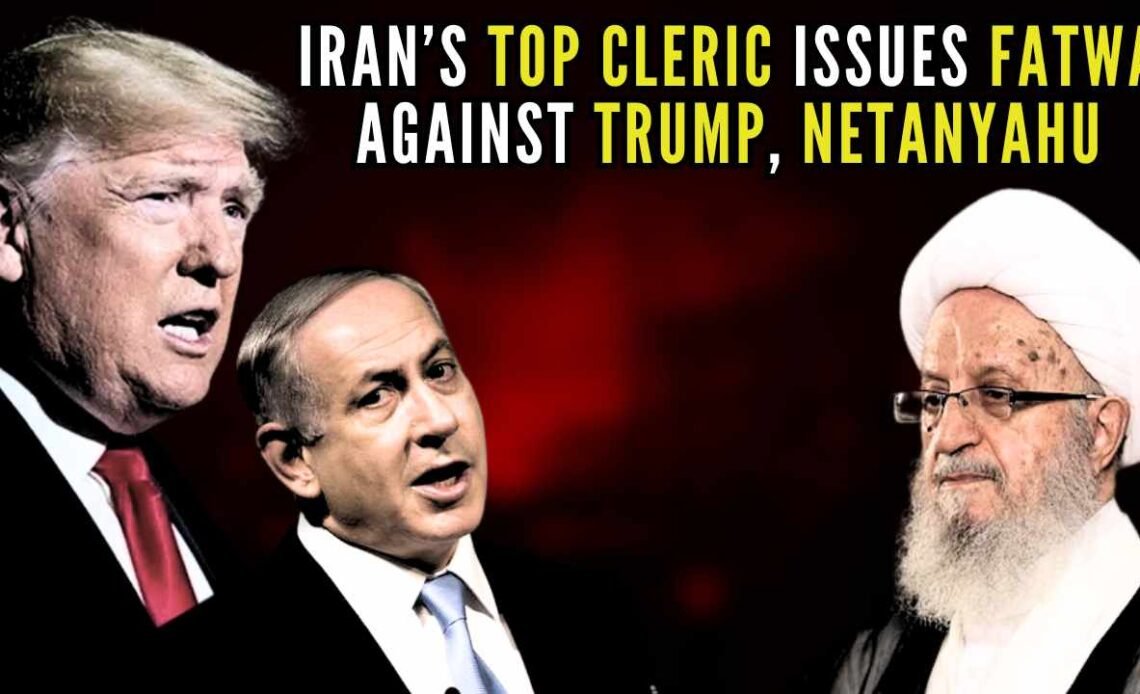In a bold and highly controversial move, a top Iranian cleric has issued a fatwa targeting former U.S. President Donald Trump and Israeli Prime Minister Benjamin Netanyahu. The Iran Fatwa Trump Netanyahu development has sent shockwaves through global political circles, reigniting debates over Middle Eastern tensions, religious authority, and international security.
What is a Fatwa?
A fatwa is a formal religious ruling or legal opinion issued by a qualified Islamic scholar. Though often misunderstood in the West, fatwas can range from advisory statements to serious religious decrees that may carry significant consequences.
In this case, the Iran Fatwa Trump Netanyahu declaration goes beyond spiritual guidance, symbolizing deep political hostility and a formal expression of Iran’s grievances against two of its most outspoken adversaries.
Who Issued the Fatwa?
The fatwa was issued by one of Iran’s most influential clerics, known for his close ties to the country’s hardline political establishment. While all media outlets have not officially disclosed his name, Iranian state-affiliated sources confirm that the ruling carries significant weight within the country’s religious hierarchy.
The cleric’s statement underscores Iran’s ongoing defiance toward Western powers and Israel, further cementing the antagonistic posture that has defined Iran’s foreign policy for decades.
Why Were Trump and Netanyahu Targeted?
The roots of the Iran Fatwa Trump Netanyahu controversy lie in years of escalating tensions.
Trump’s Role in Escalating U.S.-Iran Hostilities
During his presidency, Donald Trump withdrew the United States from the Iran nuclear deal (JCPOA) in 2018, reimposing harsh economic sanctions on Tehran. His administration’s policies, including the maximum pressure campaign, significantly strained U.S.-Iran relations.
The situation reached a boiling point in January 2020 when a U.S. drone strike, authorized by Trump, killed Iranian General Qasem Soleimani. This assassination remains one of the most significant catalysts for Iran’s grievances against Trump, directly influencing the recent fatwa.
Netanyahu’s Hardline Stance Against Iran
Israeli Prime Minister Benjamin Netanyahu has long been an outspoken critic of Iran’s nuclear ambitions, frequently calling for international action to prevent Tehran from acquiring nuclear weapons. His government has been linked to covert operations targeting Iranian scientists and infrastructure, deepening hostilities between the two nations.
Netanyahu’s unwavering opposition to Iran, combined with Israel’s regional influence, positioned him alongside Trump as a primary adversary in Iran’s eyes.
Global Reactions to the Iran Fatwa Trump Netanyahu Announcement
The Iran Fatwa, Trump, and Netanyahu ruling have sparked intense reactions worldwide.
U.S. Response
While the U.S. government has not officially commented on the fatwa, security experts note that any such declaration—especially targeting a former president—raises serious safety concerns. Trump’s security detail has reportedly been advised to remain vigilant.
Israel’s Stance
Israeli officials have condemned the fatwa, labeling it a provocative and dangerous escalation. Netanyahu, known for his defiant rhetoric, has yet to respond directly but continues to emphasize Israel’s right to defend itself against Iranian threats.
International Community’s Concern
Global leaders have expressed alarm over the potential fallout from the Iran Fatwa Trump Netanyahu ruling. Many fear it could further destabilize an already volatile Middle East, derail diplomatic efforts, and spark retaliatory actions.
What Are the Possible Consequences?
The Iran Fatwa, Trump Netanyahu development could have far-reaching implications:
- Legal and Diplomatic Fallout: While fatwas are religious, they often carry political undertones that influence international relations. This ruling complicates diplomatic dialogue and may trigger new sanctions or military posturing.
- Security Concerns: Both Trump and Netanyahu may face heightened security risks. Historical examples, such as the fatwa against author Salman Rushdie, illustrate how such declarations can lead to real-world violence.
- Impact on Geopolitical Stability: The ruling reinforces Iran’s aggressive posture, potentially escalating proxy conflicts across the region and straining already fragile relations with Western allies.
Conclusion
The Iran Fatwa Trump Netanyahu declaration underscores the deep and enduring hostility between Iran, the United States, and Israel. As political tensions rise, the global community watches closely, wary of the potential for further conflict.
In the coming weeks, world leaders will face tough decisions about how to navigate this latest flashpoint while preventing escalation. For now, the Iran Fatwa Trump Netanyahu ruling serves as a stark reminder of the complexities that define Middle Eastern geopolitics.
Stay Informed with Trending Stories – Join Our Newsletter Today!


